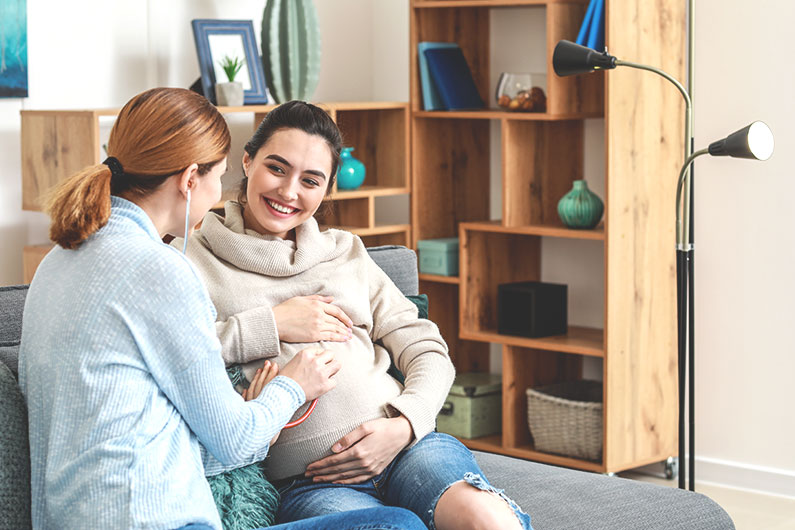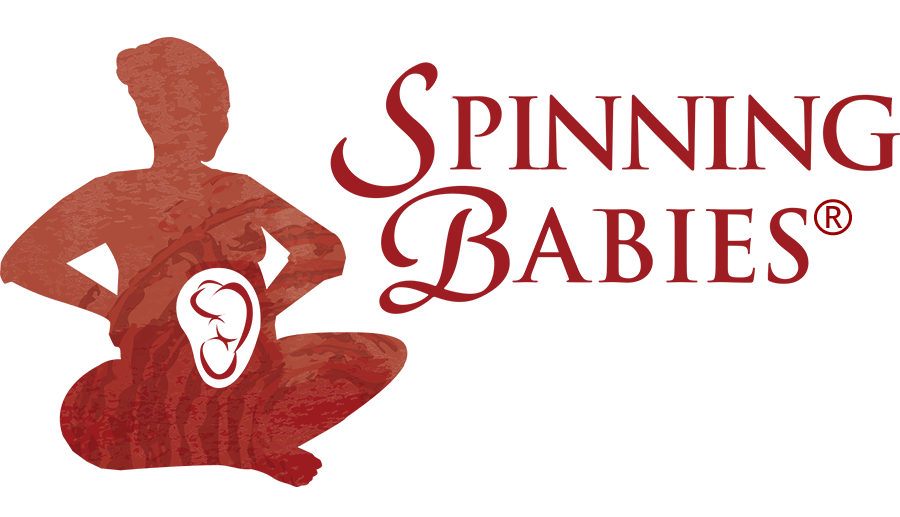Choice in Childbirth

Choice in childbirth begins with a discussion with oneself or between oneself and another. What do we want? And how do we feel when considering that want? Are we excited, anxious, doubtful or determined?
When seeking possibilities to choose options for childbirth, pregnant parents naturally turn to people in their social circles and communities. Partners, family, friends, birth educators, yoga or exercise instructors, doulas, and providers are among those of particular importance to consider in parents’ decision-making.
Providers who can hear the needs inside parent’s desires and requests—indeed, who can hear the need inside a demand or even inside a doubt expressed— can often ease the stress inherent within a decision-making process. We don’t seek a strategy to solve a problem. Rather, we listen for the need. Needs are necessary. Desires are how we prefer our needs get fulfilled.
Childbirth Options: What’s Best?
Choice implies a comparison, and comparisons imply preferences. Someone might have a choice between two kinds of pain-relief medication or between medications and natural methods for coping with pain in childbirth. Some wonder whether to prepare for birth with a method or to wait and see what happens. Whether to have a doctor or midwife; whether to have a doula or not; and whether to have a hospital, birth center, or home birth are just a few other choices in childbirth.
The “best” choice for one person may be quite different from that of another. So how does one approach these decisions? A choice might be said to be “good” when the person feels their selection moves them closer to their view of a more completed version of themselves. They might feel the choice supports their identity as they see themselves. Thus, developing identity further can help us make important choices: We make our choice, and then suddenly our choice also makes us.
Making Informed Choices
Education is often cited as the primary way to make informed choices, but knowing the details and possibilities of various options is just one side of empowerment. Relationships are the other side of the coin. When a relationship with a childbirth educator, doula, or health professional is needs-focused rather than ideology-focused (biased or agenda-based), the interactions can be quite satisfying.
The most important relationship is the one with ourselves. It’s our ability to listen to our bodies and form an honest perception of what fits or doesn’t fit our own needs that enables informed choice. When I’m informed about myself as much as I am about my options, I can match those options to my preferences. If I know what does and doesn’t feel right, I have a chance to choose a course of care that fits me.
Figuring out my choices, for instance, begins with identifying what I need. A “needs-first” approach invites a dialogue with oneself in order to arrive at a well-suited choice through self-reflection, rather than trying to pick the socially prescribed “right” thing to do without introspection, which delays seeing how a choice fits until experiencing it. An honest look at how one’s body feels when discussing choices can invite a “needs-first” approach, rather than a list of strategies to avoid something not wanted. We can reach for what we think we want, but knowing our needs helps us know what we want, not just go with the status quo. We might ask a worthy question.
Spinning Babies® began when I asked what was needed for easier childbirth. I found that an approach beginning with physiological needs offered a gentle and individualized way of giving birth. You might ask what your body and heart need for the birth you want.
“Needs First” Communication
Yvette Erasmus is a friend to Spinning Babies® who offers online (including YouTube) and in-person tools for engaging in your own Healing-Work, Heart-Work, and Hope-Work. Yvette invites her readers to “internalize the skills of transformation, nonviolence, and open-heartedness on the personal level first.” These steps empower personal choice. “Then,” Yvette says, “standing on a strong, inner foundation, you’ll transform your relationships, your cultures and the broader systems that frame human lives.” Ms. Erasmus lists her own hope/wish list:
- Meaningful, nurturing relationships — with ourselves, with others and with life around the world
- The protection of life and eco-systems on the planet
- The alleviation of unnecessary suffering
- Economic systems that support universal human values, that serve the needs of the people they are meant to support and help all people thrive.
- Educational systems grounded in humane learning conditions and tending to whole people.
- Depolarized political systems, focused on both critical and creative thinking, harnessing a creative synergy of the best of liberal, independent and conservative ideas — and everything in between and beyond.
- Restorative justice systems based on accountability, empathy for all, forgiveness, learning, rehabilitation and meaningful, safe reintegration whenever possible.
- Health care systems prioritized and organized around health, healing and our collective well-being, not rapacious profit or greed.
Meet Yvette Erasmus at YvetteErasmus.com or search for her on YouTube. We really enjoyed her discussion of “needs-first” communication with us at our 2019 Trainer Training.
The relationship with the self helps create a nurtured future. Relationships with others can help create this nurtured future too. A supportive partner sees their partner’s vulnerability and strength within their needs, and quiets themselves invitingly for their partner to voice their needs. A doula is trained to help the birth giver’s voice come forward out of silence or, perhaps, a defensive anxiety. Providers who listen for the needs in the birth giver’s requests are moved toward a compassionate relationship with less friction.
Have a date with yourself today or tonight. Meet up over a journal or for a walk. A good question might be, “What am I doing now to meet my needs in order to nurture my future?” If you can list three things, give yourself a big hug! If not, perhaps realize that we struggle when we keep trying different solutions without giving compassion to the needs that arise in ourselves and others. Once we connect with the needs we share, the appropriate solutions come more easily.
References:
Why Personal Growth Matters. Dr. Yvette Erasmus
Further Reading:
- Complying with the Birth Plan
- Enhancing Prenatal Bonding
- Supporting the Birthing Family’s Perspective
- Supporting Innate Knowledge
Upcoming Workshops
[tribe_events_list limit=”4″]
